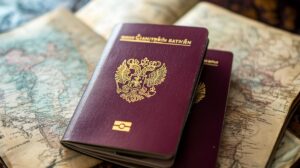
Obtaining a Polish passport by descent is an attractive option for many individuals with Polish ancestry. This process allows descendants of Polish citizens to reclaim their heritage and enjoy the benefits of European Union citizenship. The journey to acquiring Polish citizenship by descent involves understanding the eligibility criteria, gathering the necessary documentation, and navigating the legal procedures involved. This article provides a detailed exploration of the requirements and documents needed to successfully obtain Polish citizenship by descent, offering valuable insights for those interested in reconnecting with their Polish roots.
Eligibility Criteria for Polish Citizenship by Descent
To qualify for Polish citizenship by descent, applicants must demonstrate a direct lineage to a Polish ancestor. This typically involves proving that at least one grandparent or great-grandparent was a Polish citizen. The key factor is establishing an unbroken chain of citizenship, which means that the ancestor in question must have been a Polish citizen after 1920, when the modern Polish state was established. Additionally, the applicant must show that their ancestor did not renounce Polish citizenship or acquire citizenship of another country before 1951, as this could affect their eligibility.
It is important to note that Polish citizenship laws have evolved over time, and different rules may apply depending on the period in which the ancestor lived. For instance, the laws governing citizenship acquisition and loss were different before and after World War II. Therefore, understanding the historical context and legal framework is crucial for determining eligibility.
Documents Required for Polish Citizenship by Descent
Gathering the necessary documentation is a critical step in the process of obtaining Polish citizenship by descent. Applicants must provide evidence of their Polish ancestry, which typically includes birth, marriage, and death certificates of the Polish ancestor. These documents should clearly establish the familial connection between the applicant and their Polish ancestor.
In addition to vital records, applicants may need to provide other supporting documents, such as military records, passports, or naturalization certificates, to further substantiate their claim. It is essential to ensure that all documents are authentic, properly translated into Polish, and, if necessary, apostilled to meet the legal requirements.
For more detailed information on the documentation process, you can visit https://lexmotion.eu/polish-passport/.
The Application Process for Polish Citizenship by Descent
Once the eligibility and documentation are in place, the next step is to submit an application for Polish citizenship by descent. This process involves filing an application with the appropriate Polish authorities, typically through a Polish consulate or embassy if the applicant resides outside of Poland. The application must include all relevant documents, along with a completed application form and any applicable fees.
The processing time for citizenship applications can vary, depending on the complexity of the case and the workload of the consulate or embassy. Applicants should be prepared for a potentially lengthy process, as each application is thoroughly reviewed to ensure compliance with Polish citizenship laws.
Throughout the application process, it may be beneficial to seek legal assistance or consult with experts who specialize in Polish citizenship by descent. These professionals can provide guidance, help navigate the legal intricacies, and increase the likelihood of a successful application.
In conclusion, obtaining a Polish passport by descent is a rewarding endeavor that allows individuals to reconnect with their heritage and enjoy the privileges of European Union citizenship. By understanding the eligibility criteria, gathering the necessary documentation, and following the application process, applicants can successfully claim their Polish citizenship and embrace their ancestral roots.






